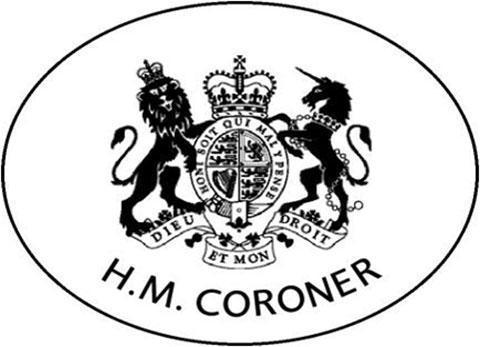
The shocking failings of the work capability assessment system – and the healthcare assessors who are paid to police it – have been exposed by the family of one of its victims.
By John Pring Disability News Service Thursday 22 October 2015
Disability News Service (DNS) revealed last month how a coroner had demanded action from the Department for Work and Pensions (DWP), following the death of a north London disabled man who killed himself after he was found “fit for work”.
The report by the senior coroner for inner north London, Mary Hassell, concluded that Michael O’Sullivan had long-term depression and anxiety but that “the intense anxiety that triggered his suicide, was caused by his recent assessment by the Department for Work and Pensions (benefits agency) as being fit for work, and his view of the likely consequences of that”.
Now, thanks to notes taken by members of O’Sullivan’s family at the inquest into his death, on 7 January 2014, DNS can reveal for the first time how the tragedy has laid bare the grave flaws within the work capability assessment (WCA) system.
Michael O’Sullivan’s daughter, Anne-Marie, has described the evidence given at the inquest by the former orthopaedic surgeon who assessed her father in March 2013, on behalf of the government contractor Atos Healthcare.
During his evidence, the assessor admitted that he had not asked O’Sullivan whether he had suicidal thoughts, because he thought he “looked OK”.
The Atos doctor, who said he had worked for the company for 15 years, wrote in three places on the WCA form that O’Sullivan had “no ideas of self-harm”, even though he had failed to ask him this question and O’Sullivan had made it clear on the pre-assessment form that he had suicidal thoughts.
O’Sullivan’s GP, psychiatrist and psychologist all gave evidence to the inquest to say that he had been showing obvious signs of depression and anxiety.
 But the Atos doctor claimed that although O’Sullivan had looked “a bit stressed”, this was perfectly normal for people who claimed they were depressed, and was just a sign that they were worried about losing their benefits.
But the Atos doctor claimed that although O’Sullivan had looked “a bit stressed”, this was perfectly normal for people who claimed they were depressed, and was just a sign that they were worried about losing their benefits.
And when asked why he failed to ask O’Sullivan if he had had any suicidal thoughts, he suggested that ESA claimants sometimes fake their symptoms when asked that question in assessments.
He also said that he had not wanted to “place” the idea of suicide in O’Sullivan’s head by asking the question.
The answers given by the Atos doctor are further evidence of the impact of years of rhetoric from both politicians and the media suggesting that many claimants of disability benefits are “skivers and scroungers”.
Tory ministers and senior Labour figures – including Conservative work and pensions secretary Iain Duncan Smith and former Labour leader Ed Miliband – have consistently pushed the idea that claimants of out-of-work disability benefits were partly responsible for the budget deficit or were “shirking their duties”.
In November 2010, a little over two years before the assessment that caused O’Sullivan’s death, Duncan Smith said in an interview in The Sun newspaper that he had been “appalled” at how easy it had been in the past for people to claim incapacity benefit (IB) and cheat the system.
Michael O’Sullivan had been claiming IB since 2000, due to depression, social anxiety, agoraphobia, and general anxiety disorder that had gradually worsened ever since he first moved to London from rural Ireland at the age of 19.
He was eventually forced onto the mainstream jobseeker’s allowance because of what his family and other critics say are the “momentous” flaws in the WCA system.
In October 2013, just days after O’Sullivan died, Duncan Smith told the Tory conference that a plan to toughen rules for people on jobseeker’s allowance “marks an end to the something-for-nothing culture”.
Anne-Marie O’Sullivan said she and her family believed that the Atos assessor had “already formed an opinion on dad before he had even had a chance to assess him”.
She said:
“It was like the doctor was thinking, ‘Here we go, here’s another one who claims he’s depressed.’ There was a complete lack of understanding.”
She said the government had admitted “regrettable mistakes” but had offered no apology or expressed remorse for what happened, and appeared to have taken no action to change the system since his death.
She said:
“We will never recover from our loss. It will haunt us for the rest of our lives because it should and could have been avoided.”
Now the family want the WCA scrapped and replaced with a fairer, more supportive system.
She added:
“Our family would very much like to see the assessments halted until the system can be made completely transparent and fair.”
In response to these concerns, a DWP spokeswoman said – repeating a statement previously sent out to media last month: “Suicide is a tragic and complex issue and we take these matters extremely seriously.
“Following reforms to the work capability assessment, which was introduced in 2008, people are getting more tailored support to return to work instead of being written off on long term sickness benefits as happened too often in the past.”
Informed of DWP’s response, Anne-Marie O’Sullivan said:
“I am deeply disappointed by the DWP’s callous response to the concerns we have raised.
“It is such a contrast to the thoughtful and strong-minded actions of the coroner, who stressed the importance of the sanctity of life, and highlighted the need for action in her report.
“I am determined to secure justice for my dad and to ensure no other family endures the suffering we have.”
Atos refused to comment.
